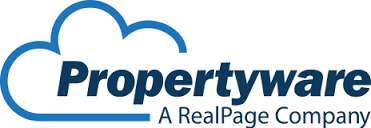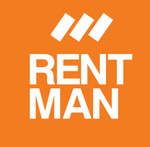Description

Bookex

Propertyware
Comprehensive Overview: Bookex vs Propertyware
Bookex and Propertyware are both software solutions catering to the property management industry, but they serve different needs and target markets within that space.
A) Primary Functions and Target Markets
Bookex:
-
Primary Functions:
- Bookex is a property management software primarily designed for managing student housing and co-living spaces.
- It offers features such as room assignments, lease management, billing and payments, maintenance requests, and communication tools tailored for the student and co-living markets.
- Provides an online portal for both management and residents, streamlining communication and administrative processes.
-
Target Markets:
- Student housing operators.
- Co-living space providers.
- Universities and colleges looking to manage on-campus accommodations.
Propertyware:
-
Primary Functions:
- Propertyware is a cloud-based property management solution focusing on the management needs of single-family and small residential properties.
- Key features include tenant and lease tracking, accounting and financial reporting, maintenance management, and marketing tools.
- Offers integrations with other platforms for CRM, payment processing, and more.
-
Target Markets:
- Property management companies managing single-family homes.
- Small to medium-sized residential property managers.
- Real estate professionals involved in leasing and maintaining rental properties.
B) Market Share and User Base
Bookex:
- Bookex has a niche market, primarily targeted at student housing and co-living spaces, which limits its reach compared to more broadly focused property management platforms.
- Given its specialization, its user base is smaller but concentrated within its niche, offering tailored solutions that generic property management software might not provide.
Propertyware:
- Propertyware has a broader market appeal within the residential property management sector.
- It serves a significant portion of the single-family rental market, especially in the United States.
- Due to its focus on scalability and integration capabilities, Propertyware tends to have a larger user base compared to niche products like Bookex.
C) Key Differentiating Factors
Bookex:
- Specialization: Tailored specifically for the student housing and co-living segment, with features adapted to the specific needs of these markets.
- User Experience: Offers a user experience designed for both property managers and residents in shared accommodations, focusing on ease of use in communal living situations.
Propertyware:
- Scalability and Flexibility: Built to scale from managing a few units to thousands, with robust backend systems and integrations.
- Broad Feature Set: Provides a comprehensive set of tools that can manage everything from tenant acquisition to property maintenance for single-family homes.
- Integrations: Strong integration capabilities with a variety of other software systems and platforms, offering expanded functionality.
In essence, the choice between Bookex and Propertyware depends largely on the specific needs of the property management entity. Bookex serves specialized niches effectively, while Propertyware offers broader utilities suitable for a wide range of residential property management scenarios.
Contact Info

Year founded :
2018
Not Available
Not Available
Netherlands
Not Available

Year founded :
Not Available
Not Available
Not Available
United States
Not Available
Feature Similarity Breakdown: Bookex, Propertyware
To provide a feature similarity breakdown for Bookex and Propertyware, we need to first understand that both are property management software platforms. They typically cater to landlords, property managers, and real estate professionals. Here's a speculative breakdown based on common features usually found in property management software and the general focus of each platform:
a) Core Features in Common
-
Tenant and Lease Tracking:
- Both platforms allow users to manage tenant information and lease agreements effectively.
-
Maintenance Management:
- They provide systems for logging, tracking, and managing property maintenance requests.
-
Online Payment Processing:
- Enables tenants to pay rent online, and landlords to track these payments effortlessly.
-
Accounting and Financial Reporting:
- Both offer tools for handling financial transactions and generating necessary accounting reports.
-
Marketing and Listings:
- Facilities to list and market available properties, often with integration to major listing sites.
-
Communication Tools:
- Implement features to facilitate communication between property managers, tenants, and owners.
b) User Interface Comparison
-
Bookex: As a relatively newer player in property management, Bookex might focus on intuitive design with modern UI practices. Such products often emphasize a clean layout, easy navigation, and mobile-responsive interfaces to attract tech-savvy users.
-
Propertyware: As an established platform, Propertyware is likely to have a robust and comprehensive interface. While possibly not as sleek as newer entrants, it often compensates with depth in functionality and customization options, which might appeal to users managing larger portfolios needing advanced features.
c) Unique Features
-
Bookex Unique Features:
- Integration with Modern Tools: Bookex might offer seamless integration with contemporary real estate and communication tools (like Slack or Zoom) for enhanced connectivity.
- AI and Automation: Utilization of AI for predictive analysis and automation in tenant screening and rent reminders could set it apart.
-
Propertyware Unique Features:
- Advanced Customization: Given its maturity, Propertyware might offer more advanced customization options for reports and workflows.
- Scalability and Comprehensive Modules: It might cater better to large-scale property management operations with modules for specific property types and detailed financial management tools.
It's worth noting that actual features may vary based on specific product versions, and recent updates to the platforms may introduce additional functionalities not covered here. Direct engagement with their sales or support teams, or trialing the software, could offer more precise insights.
Features

Not Available

Reporting and Analytics
Communication Tools
Tenant Management
Maintenance Management
Financial Tracking
Best Fit Use Cases: Bookex, Propertyware
Bookex and Propertyware are both property management software solutions, but they cater to different types of businesses and projects based on their unique features and capabilities. Here's a detailed overview of their best-fit use cases:
a) For what types of businesses or projects is Bookex the best choice?
Bookex Best Fit Use Cases:
- Hospitality Industry:
- Small to Mid-sized Hotels: Bookex is designed to handle reservations, room management, and customer interaction, making it a solid choice for small to mid-sized hotels.
- Guesthouses and B&Bs: Its intuitive interface and ease of use make it ideal for smaller guesthouses and bed-and-breakfast establishments focusing on enhancing guest experience.
- Short-term Rental Management:
- Vacation Rentals: Bookex offers functionality to streamline booking processes and manage multiple property listings, ideal for vacation rental owners.
- Property Managers: Those managing a portfolio of short-term rentals can benefit from its centralized management tools to synchronize bookings and guest communications.
- Event Space Management:
- Conference Centers and Event Venues: Facilities that host events and conferences can use Bookex to manage space bookings and resource allocation efficiently.
b) In what scenarios would Propertyware be the preferred option?
Propertyware Preferred Use Cases:
-
Residential Property Management:
- Large-scale Property Managers: Propertyware is particularly suited for managers of large residential portfolios, including apartment complexes and multi-family housing units.
- Property Investors: Investors handling numerous residential properties can benefit from its robust reporting and financial management tools.
-
Multi-family and HOA Management:
- Homeowners Associations: With tools for accounting, payment processing, and communication, Propertyware is equipped to handle the needs of homeowner associations.
- Multi-family Developments: Ideal for managing communications and operations across multiple units or buildings within a development.
-
Long-term Lease Management:
- Lease-focused Operations: Properties focused on long-term rental agreements can leverage Propertyware's features for lease tracking and tenant management.
d) How do these products cater to different industry verticals or company sizes?
Industry Verticals and Company Size:
-
Bookex:
- Verticals Served: Primarily serves the hospitality and tourism industry, along with event management sectors.
- Company Size: Best suited for small to medium-sized businesses that need an easy-to-use, cost-effective property management solution with essential features to enhance customer service.
-
Propertyware:
- Verticals Served: Focused heavily on the real estate sector, especially residential property management, but also accommodates the needs of HOA and large property management firms.
- Company Size: Designed for medium to large enterprises with extensive property portfolios. Its scalability and comprehensive feature set make it apt for larger operations that require robust management tools and detailed analytics.
In summary, Bookex is ideal for businesses in the hospitality sector managing smaller to medium-sized operations, while Propertyware excels in residential property management for larger enterprises and more complex property portfolios. Each caters to its specific industry vertical with tailored features that address distinct operational needs.
Pricing

Pricing Not Available

Pricing Not Available
Metrics History
Metrics History
Comparing undefined across companies
Conclusion & Final Verdict: Bookex vs Propertyware
When evaluating Bookex and Propertyware, it's essential to consider both their strengths and weaknesses to determine which offers the best overall value, depending on the specific needs and scale of your property management operations. Here's a detailed conclusion and final verdict:
Conclusion and Final Verdict
a) Best Overall Value
Propertyware often presents the best overall value, especially for larger property management companies that manage a substantial number of units and need comprehensive features. Its robust functionalities, scalability, and customizability make it a reliable choice for complex property management operations.
b) Pros and Cons
Bookex
-
Pros:
- Bookex is often cost-effective, making it appealing for smaller businesses and those managing fewer properties.
- Its user-friendly interface ensures a shorter learning curve, making it accessible for teams new to property management software.
- Efficient booking management and integration capabilities streamline operations for short-term rental properties.
-
Cons:
- Limited advanced features compared to more comprehensive systems like Propertyware can be restrictive for larger operations.
- It may not provide the same level of customer service and support as more established platforms.
Propertyware
-
Pros:
- Provides a comprehensive suite of features including tenant screening, accounting, maintenance, and communications tools, which cater well to larger operations.
- Highly scalable and customizable, which can grow with your business needs.
- Strong reporting and analytics capabilities offer valuable insights into operational performance.
-
Cons:
- Higher cost, which may not be justifiable for smaller property managers with limited budgets.
- Steeper learning curve due to its extensive features, potentially requiring more time and resources for training and onboarding.
c) Recommendations
-
Assess Needs and Scale:
- If you manage a large portfolio of properties and need extensive functionality and scalability, Propertyware is likely the better choice. Its features cater to comprehensive management needs and offer robust reporting.
- For smaller operations or those primarily dealing with short-term rentals and who prioritize ease of use and budget, Bookex may be more suitable.
-
Consider Budget Constraints:
- Evaluate the long-term financial implications. While Bookex may be more affordable initially, Propertyware’s additional features might justify the expense for growing businesses.
-
Operational Priorities:
- Determine which features are critical to your operations. If advanced analytics, tenant screening, and detailed maintenance management are priorities, Propertyware has an edge.
- Conversely, if simple booking and rental management suffice, Bookex could offer what you need at a lower cost.
Overall, carefully weigh the pros and cons against your operational needs and budget to make the best choice between Bookex and Propertyware. Each has strengths tailored to different aspects of property management, so the decision ultimately hinges on aligning software capabilities with organizational goals.
Add to compare
Add similar companies



